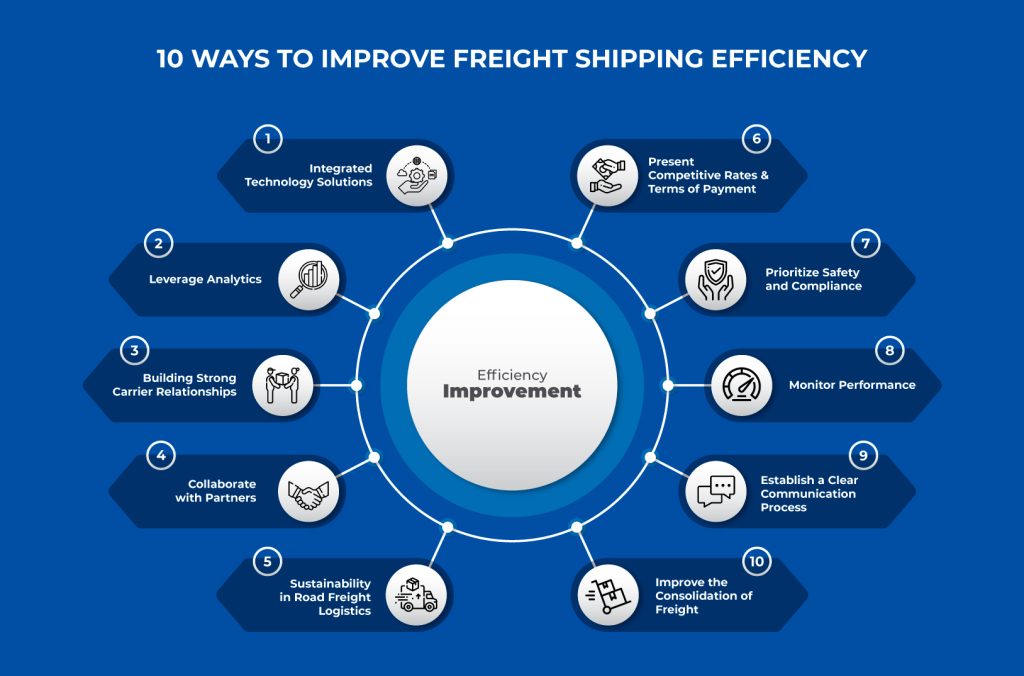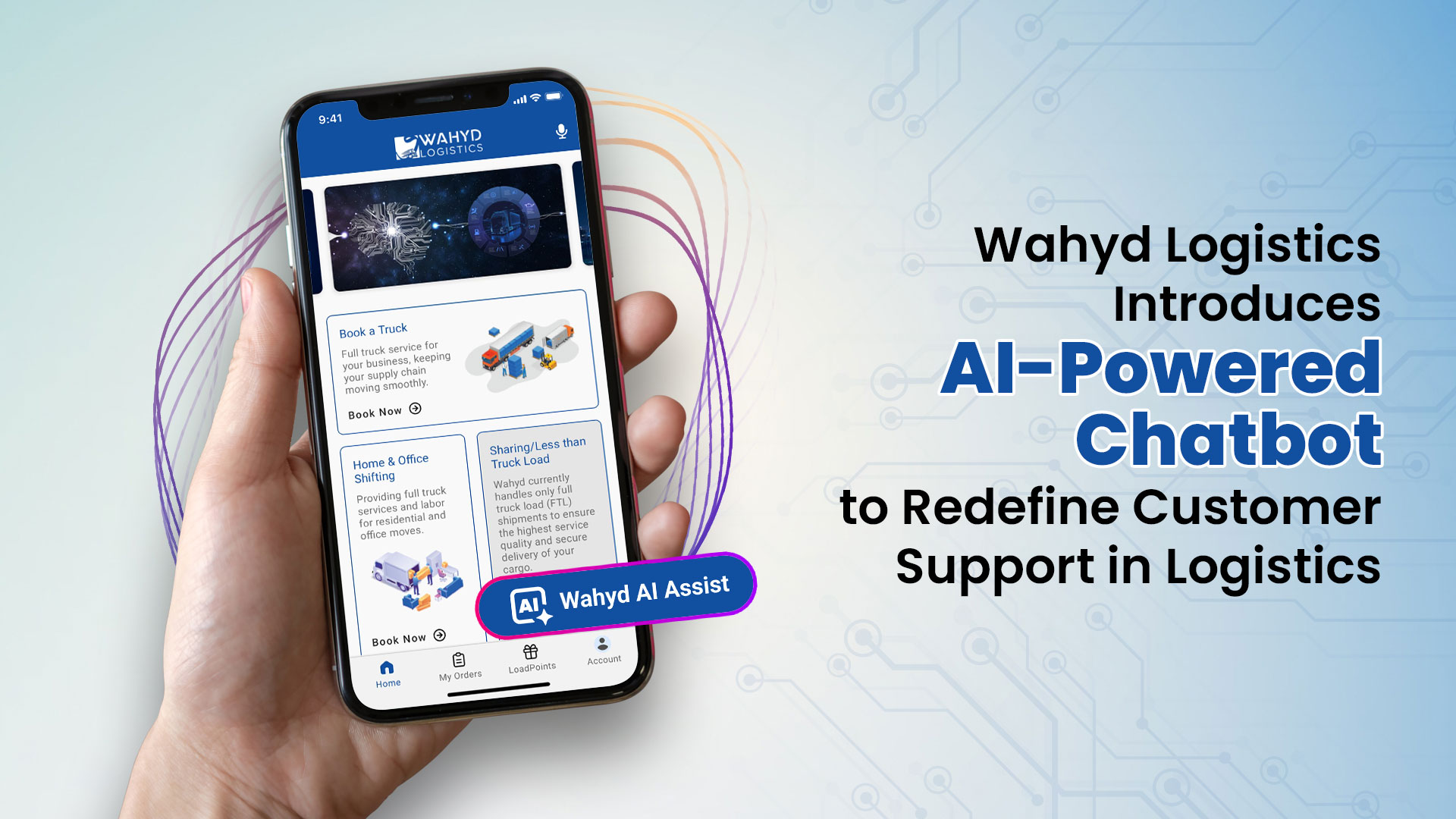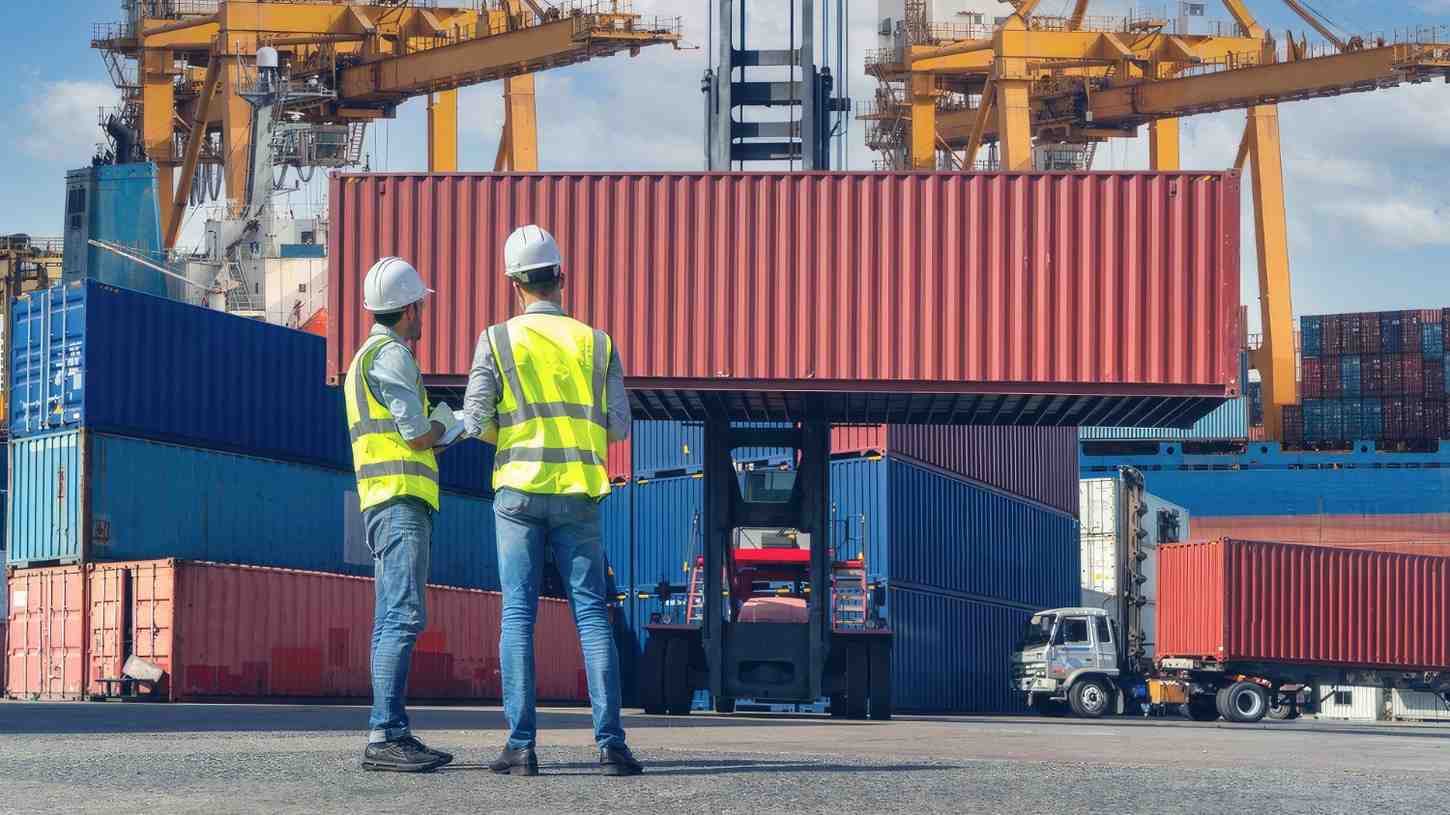
The evolution of the logistics industry has seen a significant shift towards digitalization, and road freight marketplaces have emerged as a cornerstone in this transformation.
By connecting shippers with carriers through a digital platform, these marketplaces facilitate a more efficient, transparent, and cost-effective process for freight shipping.
This approach is not only beneficial for large corporations but also for small to medium-sized enterprises seeking to optimize their shipping strategies.
Integrating road freight marketplaces into shipping strategies offers a compelling solution for enhancing freight shipping efficiency.
Let’s delve into the strategies for leveraging road freight marketplaces to optimize logistics operations, focusing on key aspects such as cost reduction, time management, and technology adoption.
Understanding Road Freight Marketplaces
Road freight marketplaces are the digital platforms that connect shippers with carriers. They leverage technology to offer real-time tracking, dynamic pricing, and efficient load matching. Understanding the workings of these marketplaces is the first step toward leveraging their potential.
These platforms offer numerous benefits such as reduced empty miles, optimized route planning, and enhanced visibility, all contributing to increased efficiency in logistics.
Digital Road Freight Marketplaces perfectly illustrate how digitalization can revolutionize traditional processes. These platforms turn complex logistical operations into simple, digitalized, and automated solutions by leveraging technology.
Logistics digitalization is improving supply chain management and increasing efficiency by reducing costs and improving customer service.
Traditional vs Digital Road Freight Marketplace
Traditional marketplaces often use a lot of paperwork and manual work, which makes it hard to see and manage everything. This can lead to problems in how things work and extra costs.
A digital freight marketplace uses technology to easily connect people who need to ship goods with a large group of independent truck drivers.
This online system keeps prices fair because there’s a lot of competition, and it helps people who need to ship goods use truck space more efficiently, even when things are unpredictable.
By using a digital platform to handle routine tasks in shipping, the logistics teams – the people who organize the moving of goods – can spend more time on bigger and more important transportation problems.
Why Road Freight Marketplaces Matter
Efficient freight management goes beyond its financial implications for your company and has a profound influence on customer satisfaction and overall operational flexibility.
Businesses that control their freight expenditures while upholding service excellence gain a notable competitive edge, particularly in scenarios where market dynamics undergo shifts and transportation costs experience an upward trajectory.
By effectively managing freight operations you can successfully reduce shipping freight expenses without compromising the quality of service provided, solidifying your position as an agile and cost-conscious player in the industry.
Advantages of Using Road Freight Marketplaces
Road freight marketplaces are becoming increasingly important in the logistics and transportation sector for several reasons:
- Efficiency and Optimization: They provide a platform where shippers and carriers can connect more efficiently. This reduces empty miles for carriers and helps shippers find transportation for their goods faster. Such platforms often use advanced algorithms to match supply and demand, optimizing routes and loads, thereby saving time and reducing costs.
- Cost-Effective Solutions: By providing a larger pool of carriers, these marketplaces often lead to more competitive pricing, benefiting shippers. Smaller carriers also get access to a larger market, helping them find more business opportunities.
- Transparency and Real-Time Tracking: Modern road freight marketplaces often include features like real-time tracking and transparent pricing. This increases the element of trust and accountability in the supply chain, enabling shippers to have more control and visibility over their shipments.
- Flexibility and Scalability: These platforms offer flexibility for both shippers and carriers. Shippers can find transportation solutions as per their varying needs, and carriers can choose loads that match their schedules and routes. This scalability is particularly beneficial for businesses experiencing fluctuating demand.
- Digital Integration and Automation: Many road freight marketplaces incorporate digital tools and automation, streamlining processes such as booking, billing, and tracking. This reduces administrative burdens and increases overall efficiency.
- Sustainability: By optimizing routes and loads, these marketplaces can contribute to reducing carbon emissions. Efficient logistics reduce unnecessary travel, contributing to environmental sustainability.
- Data Analytics and Insights: These platforms can provide valuable data and insights into market trends, pricing, and demand patterns. This information can help businesses in strategic planning and decision-making.
- Support for Small and Medium Enterprises (SMEs): Small and medium-sized carriers often find it challenging to compete with larger companies. Road freight marketplaces level the playing field by giving them access to a wider customer base and enabling them to operate more efficiently.
Strategies for Maximizing Freight Shipping Efficiency
Utilizing technology effectively can enhance the performance of your logistics network, cutting down costs and boosting customer satisfaction simultaneously.
Although numerous methods exist to heighten logistics efficiency, the following are 10 practical tips for optimizing your logistics operations to guarantee seamless functionality.

Integrated Technology Solutions
Integrated technology solutions are revolutionizing freight shipping efficiency by seamlessly blending advanced technologies and logistics strategies.
Key components include automation for routine tasks, GPS and RFID for real-time shipment tracking, and data analytics for insightful shipping trends and demand forecasting.
The integration of Internet of Things (IoT) devices enhances cargo safety and vehicle maintenance, while cloud-based platforms facilitate coordinated, efficient operations across the supply chain.
These technologies not only streamline shipping processes but also boost customer satisfaction and environmental sustainability.
Leverage Analytics
Making data-driven decisions is essential for improving the efficiency of your logistics operations. Analyzing the data collected from logistics operations can lead to insights that can help improve supply chain performance.
Collaboration with partners is essential for maximizing efficiency, and analytics tools can provide valuable feedback on KPIs such as on-time delivery.
With these measures in place, logistics performance can be improved significantly, resulting in increased efficiency and cost savings. These strategies are key for optimizing the overall efficiency of logistics operations.
Building Strong Carrier Relationships
Building strong relationships with carriers and shippers within the marketplace is crucial. Establishing long-term partnerships through these marketplaces can lead to more reliable partnerships, better rates, and higher service quality.
Collaboration in logistics isn’t just about sharing loads. It’s about sharing information, resources, and best practices. This collaborative approach can lead to more innovative solutions and a more resilient supply chain.
Collaborate with Partners
Regarding logistics efficiency, collaboration is key. Involve all stakeholders in decision-making processes so that everyone can benefit from the best possible solutions.
By sharing information such as inventory levels, and business intelligence software, you can analyze the data collected from your and your partner’s logistics operations and gain valuable insights that can help you improve supply chain performance.
This could include identifying potential bottlenecks or areas of inefficiency and addressing them with targeted solutions to increase efficiency.
Sustainability in Road Freight Logistics
Sustainability is increasingly becoming a priority in logistics. Eco-friendly practices like using fuel-efficient vehicles and optimizing routes for reduced emissions contribute to a more sustainable logistics operation.
Many road freight marketplaces are now focusing on sustainable logistics. They offer features like carbon footprint tracking and promote carriers who use eco-friendly practices
Present Competitive Rates and Terms Of Payment
In a competitive market, attracting carriers to your logistics network can be achieved by extending cost-effective rates and favorable payment terms. This strategy not only captures carriers’ attention but also sets the foundation for productive partnerships.
Transparent pricing and commitment to timely payments create an environment of trust, incentivizing carriers to engage in consistent collaboration with your business.
This symbiotic relationship becomes particularly crucial when considering the road load-bearing capacity, as a reliable carrier partnership ensures a steady and efficient flow of shipments, optimizing your supply chain operation while minimizing disruptions.
Prioritize Safety and Compliance
Safety and compliance regulations are essential for any logistics operation, so ensuring that all personnel involved with the shipping process are adequately trained and up-to-date on industry standards is important.
Additionally, you should regularly review your procedures to ensure they adhere to current laws and regulations. This can minimize risks and keep your operations running smoothly.
Monitor Performance
Monitoring performance metrics such as delivery times, transit delays, and customer service levels is important to improve efficiency.
This data can be used to identify areas where improvements may be necessary and to inform future decisions.
By regularly evaluating performance, you can ensure that logistics operations are running at peak efficiency.
Establish a Clear Communication Process
Effective communication is essential for logistics efficiency and improved customer service.
Set up clear systems for coordinating between different departments, vendors, and customers. Such a setup will also help avoid unforeseen circumstances.
Improve the Consolidation of Freight
Freight consolidation is a method where goods from different shippers are grouped into one shipment. This approach is great for cutting down shipping costs.
When you combine different shipments into one larger load, you use the available space more efficiently. This means you spend less on transportation because you’re not moving half-empty shipments.
Working together with partners and suppliers to pack shipments closer together helps fill up any space and reduces the need for extra trips. Overall, this tactic is all about using space wisely and saving money in the shipping process.
Challenges and Solutions
While road freight marketplaces offer numerous benefits, businesses may encounter challenges such as varying service quality and dependency on digital platforms. To mitigate these issues, it is crucial to:
- Conduct thorough research and vetting of carriers.
- Implement backup strategies for technological downtimes.
- Foster communication and transparency with service providers.
Case Studies
The global road freight transportation market size was valued at USD 3.86 trillion in 2022 and is expected to grow by 5.0% from 2023 to 2029, reaching nearly USD 5.44 trillion.
Here are some real-world examples and statistics demonstrating how digital freight marketplaces enhance logistics efficiency:
- Limagrain Europe and Transporeon Platform:
- Background: Limagrain Europe, a major agricultural organization, reported significant improvements after integrating with the Transporeon platform. They allocate an annual budget of €15 million to €20 million for transportation, involving road freight as their main mode of transport.
- Implementation: The integration of the Transporeon platform into their operations involved various modules like Transport Assignment, Time Slot Management, Freight Settlement, and Analytics.
- Results: Limagrain Europe experienced fewer delays, less manual work, and significant cost and time savings. The integration exceeded their expectations by offering better visibility, reducing human error, and increasing customer satisfaction.
- Acqua Vera Case Study:
- Company Profile: Acqua Vera, an Italian mineral water producer, is committed to sustainability and efficient operations.
- Challenge and Solution: They faced challenges in managing carrier flows, especially during peak seasons. By integrating the Transporeon Transport Execution Hub with functionalities like Transport Assignment and Time Slot Management, they were able to automate transport requests and streamline operations.
- Results: This led to smoother management, improved workflows, and to 40% reduction in waiting times for trucks. Additionally, the company achieved process cost reductions of up to 30% and better relationships with carriers.
- Technological Advancement: In March 2023, ArcBest Corporation launched Vaux™, a revolutionary technology that restructures intralogistics procedures to increase efficiency. With Vaux, the contents of a trailer can be unloaded in less than five minutes, providing total insight into goods movement inside warehouse facilities, on docks, and roads.
How can Wahyd Logistics help you reduce your transportation costs?
Wahyd Logistics is a digital road freight platform and a pioneering marketplace that connects shippers and carriers. It grants you absolute autonomy in choosing partners, overseeing the transportation necessities, and furnishing thorough information on each carrier and shipper within the platform. Our algorithm will propose the best prices based on your specific requirements.
Moreover, we will comply with the requirements, protect high-value cargo, and allocate payments while helping you reduce your carbon footprint.
As we approach the conclusion of this discussion, it’s pertinent to consider the insights from Wahyd Logistics, a notable player in the road freight marketplace domain.
Wahyd Logistics distinguishes itself through:
- Innovative Solutions
- Customized Services
- Client-Centric Approach
- Sustainability Focus
Conclusion
Utilizing road freight marketplaces presents a pivotal strategy for enhancing logistics efficiency. These digital platforms streamline operations, reduce costs, and improve transparency, offering a competitive edge to businesses in managing their freight and supply chain activities. Adopting these marketplaces is key to optimizing logistics in a rapidly evolving digital landscape.
Frequently Asked Questions (FAQs)
- What are the primary advantages of road freight marketplaces in logistics?Answer: They offer cost savings and time efficiency by connecting shippers with a wide network of carriers.
- How do road freight marketplaces ensure carrier quality?Answer: These platforms vet carriers through license and safety record checks, and often use rating systems.
- Can small businesses effectively use road freight marketplaces?Answer: Yes, they provide small businesses access to competitive rates and a broad carrier network.
- Do road freight marketplaces support sustainable logistics practices?Answer: Yes, they optimize routes and loads, reducing emissions and promoting eco-friendly operations.
- What technological features do road freight marketplaces offer?Answer: They offer real-time tracking, dynamic pricing, and efficient load matching through advanced technology.







Insightful! This article masterfully outlines actionable strategies for leveraging road freight marketplaces to boost logistics efficiency.